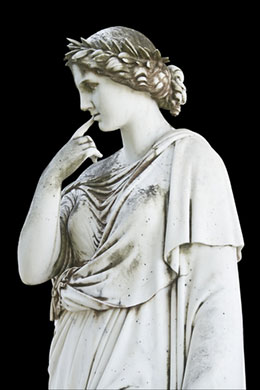
The most powerful tool, I think, the writer has is her or his intuition.
What is most often thought to be intuition is direct or immediate insight. And, indeed, if you are a successful writer you are often asked what “inspired you” to write such and such. This inspiration is often thought of as, “The spiritual perception or immediate knowledge, ascribed to angelic and spiritual beings, with which vision and knowledge are identical.” I am quoting, of course, from a dictionary.
But as I see it, intuition has nothing to do with spirituality. It has everything to do with the way you have consciously or unconsciously trained your thinking. To become a good writer you have to think like a writer. Well, not exactly. You have to think like a reader.
If you spend a lot of time watching movies, watching television, playing video games—nothing intrinsically wrong with any of them—your understanding of narration will be shaped by that experience, that is, your so-called intuition will be shaped to conform to those narrative structures.
I believe there is a lot of dialogue in my writing because—when quite young—I was a devoted listener to kids’ radio.
Over and over again when confronted with a writing problem, I try to feel my way. What I have learned to pay attention to, is that a piece of writing feels good—or bad. That feeling is informed, more than anything, by a life of reading.
Just today, after a long period of frustration, I made a major shift in something I have been writing. It had not felt good. Now, to my relief it does. What is my intuition?
It reads well.